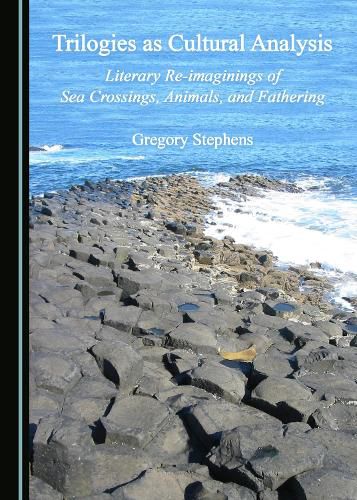Readings Newsletter
Become a Readings Member to make your shopping experience even easier.
Sign in or sign up for free!
You’re not far away from qualifying for FREE standard shipping within Australia
You’ve qualified for FREE standard shipping within Australia
The cart is loading…






This book offers a big picture view of three universal themes, as seen in literary representations: sea-crossing tales, human-animal relations, and (late) father-son relationships. Seen in triptych, these writings demonstrate how passing between worlds and across cultures has become the normative human condition. Authors analyzed within a hemispheric and post-national frame include works by Ernest Hemingway, J.M. Coetzee’s late Jesus novels, and Esmeralda Santiago’s When I Was Puerto Rican.Fusing literary criticism, communication studies, and literary nonfiction within a writing studies framework, Trilogies argues for the inclusion in our writing of personal, institutional, and disciplinary perspectives. The book invites readers to re-imagine writing and communication styles. How can we envision and communicate the representations of between-world experiences that are all around us? What kinds of writing and communication styles can travel beyond our bubbles, engage General Education students, and gain a hearing in the public sphere?
$9.00 standard shipping within Australia
FREE standard shipping within Australia for orders over $100.00
Express & International shipping calculated at checkout
This book offers a big picture view of three universal themes, as seen in literary representations: sea-crossing tales, human-animal relations, and (late) father-son relationships. Seen in triptych, these writings demonstrate how passing between worlds and across cultures has become the normative human condition. Authors analyzed within a hemispheric and post-national frame include works by Ernest Hemingway, J.M. Coetzee’s late Jesus novels, and Esmeralda Santiago’s When I Was Puerto Rican.Fusing literary criticism, communication studies, and literary nonfiction within a writing studies framework, Trilogies argues for the inclusion in our writing of personal, institutional, and disciplinary perspectives. The book invites readers to re-imagine writing and communication styles. How can we envision and communicate the representations of between-world experiences that are all around us? What kinds of writing and communication styles can travel beyond our bubbles, engage General Education students, and gain a hearing in the public sphere?